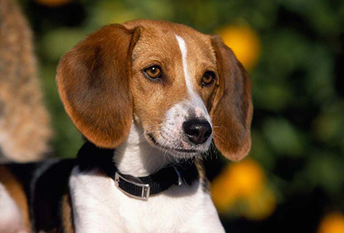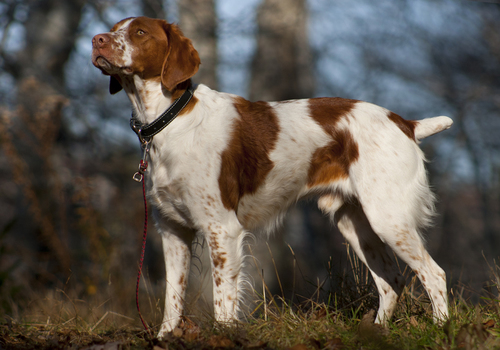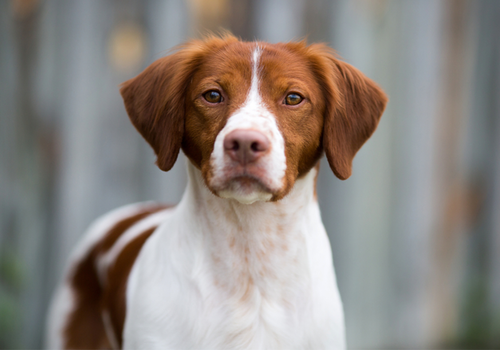The Brittany’s flat or wavy coat has a little feathering on the legs and belly, and it’s easy to care for with a weekly brushing.His coat sheds moderately, but regular brushing will keep loose hair off your floor, furniture and clothing. A bath is necessary only when he gets dirty.
The rest is basic care. Trim the nails as needed, usually every couple of weeks, and brush his teeth for good overall health and fresh breath.
Brittanys are energetic dogs that require frequent exercise and room to run – and not just time in the backyard alone. Carve out time for at least:
When feeding your Brittany, it’s best to choose high-quality dry dog foods. And since this breed is so energetic, ensure that you are feeding your dog enough food to sustain its abundant energy.
Any diet should be appropriate to the dog’s age (puppy, adult, or senior). Some dogs are prone to gettingoverweight, so watch your dog’s calorie consumption and weight level.
Treatscan be an important aid in training, but giving too many can cause obesity. Learn about whichhuman foodsare safe for dogs, and which are not.
Check with your vet if you have any concerns about your dog’s weight or diet.Clean, fresh water should be available at all times.
Like most hunting dogs, the Brittany is pretty hardy and healthy, as long as it is taken well care of. However, you may come across problems such as glaucoma, spinal paralysis affecting the hindquarters andhip dysplasia. But overall though, these dogs are generally healthy.
Brittanys need to be socialized early, otherwise, you are run the risk of having a dog that won’t be able to hunt, much less follow commands. When training this breed, use love, gentleness, and consistency to teach this intelligent dog what is necessary.











